Is a Gas or Electric Furnace Better?
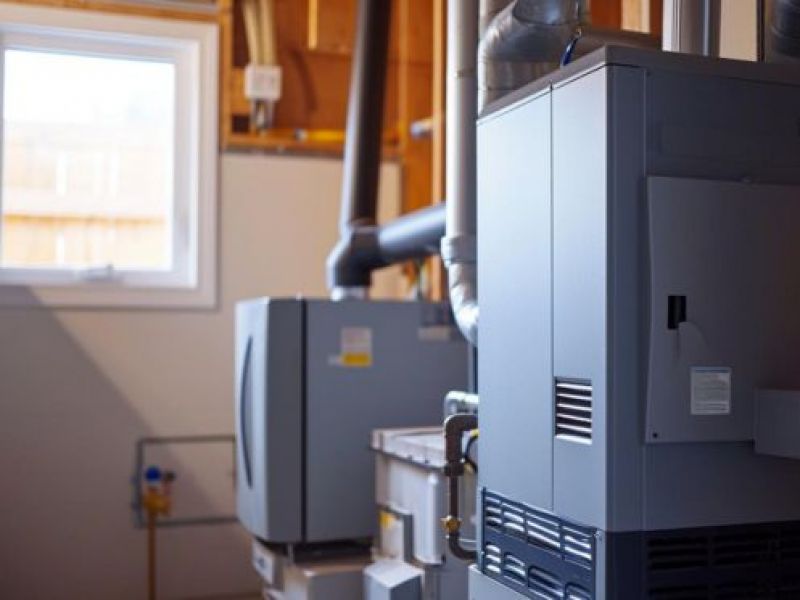
Table of Contents
TLDR: Gas furnaces are typically more efficient and have a higher heat output, making them ideal for colder climates, but require more complex installation and maintenance. Electric furnaces are safer and easier to install but can be more costly to operate, especially in regions with high electricity prices.
When it comes to heating your home, selecting the right type of furnace is a critical decision that impacts not only your comfort but also your energy bills and safety. The choice between gas and electric furnaces is a common dilemma for homeowners. Each type has distinct advantages and drawbacks, influenced by factors such as your home’s location, the local climate, and energy costs. Air Docs is here to help you navigate these options and make the best choice for your home.
Gas Furnaces: Pros and Cons
When considering a new heating system for your home, gas furnaces are a popular choice, renowned for their efficiency and powerful heating capabilities. However, like any home appliance, they come with their own set of pros and cons that homeowners should carefully weigh. Gas furnaces stand out for their ability to quickly and effectively heat your home, which is particularly valuable in regions that experience harsh winters. On the other hand, they also demand careful consideration regarding installation, maintenance, and safety. Let’s explore the advantages and drawbacks of gas furnaces to help you determine if they are the right fit for your home heating needs.
Pros:
- Efficiency and Cost: Gas furnaces are known for their efficiency. They heat the home faster than electric models, which is especially beneficial in colder regions. Over the long term, despite the upfront costs, they can be more cost-effective due to the generally lower price of natural gas compared to electricity.
- Heat Output: Gas furnaces provide a higher heat output compared to electric ones, offering a significant advantage in maintaining warmth in colder climates.
Cons:
- Installation and Maintenance: The installation of gas furnaces can be more complex. They require a gas line and a proper venting system. Regular maintenance is crucial not only for the furnace’s performance but also for ensuring safety.
- Safety Concerns: Gas furnaces carry a slight risk of carbon monoxide leaks and fire hazards if they are not maintained properly or if the installation is flawed.
Electric Furnaces: Pros and Cons
In the realm of home heating systems, electric furnaces are a noteworthy option, offering distinct advantages and certain limitations. Known for their safety and ease of maintenance, electric furnaces are increasingly becoming a preferred choice for many homeowners. They stand out for their lower risk of hazards such as carbon monoxide poisoning and fires, as well as their simple installation process, making them a convenient and safe heating solution. However, it’s important to consider their operational costs and heating efficiency, especially in areas with high electricity rates and colder climates. Let’s delve into the pros and cons of electric furnaces to understand if they align with your home heating requirements.
Pros:
- Safety and Maintenance: Electric furnaces present a lower risk of carbon monoxide poisoning and fires, making them a safer option overall. They also tend to require less maintenance than gas furnaces, which is a significant benefit for many homeowners.
- Installation: The installation of electric furnaces is generally easier and cheaper. They do not require a gas line or an extensive venting system, which allows for more flexibility in installation locations within your home.
Cons:
- Cost of Operation: One of the main downsides of electric furnaces is the operational cost. In areas where electricity is more expensive, these furnaces can lead to higher energy bills.
- Heat Output: Electric furnaces may not heat a space as efficiently as gas furnaces, which can be a drawback in very cold climates.
Air Docs: Your Partner in Home Heating Solutions
Understanding these pros and cons is just the start. Choosing the right furnace for your home depends on a comprehensive assessment of your specific needs and circumstances. This is where Air Docs excels. Our team of experts can provide personalized advice based on your home’s location, size, and your heating requirements. We consider all factors, including the long-term cost implications, safety, and environmental considerations, to recommend the best furnace option for you.
Contact Air Docs for a Consultation: Whether you’re leaning towards a gas or an electric furnace, or if you’re still undecided, Air Docs is here to assist. We offer expert installation, maintenance, and advice on all types of furnaces. Trust us to help you make an informed decision and ensure your home is warm, safe, and energy-efficient. Contact Air Docs today for all your heating and furnace needs!
Frequently Asked Questions About Furnaces
Is it cheaper to heat your house with gas or electric?
Generally, heating with gas is cheaper than electric, especially in colder climates. Gas furnaces tend to be more energy-efficient and the cost of natural gas is usually lower than electricity.
Can you switch a gas furnace to electric?
Yes, it’s possible to switch from a gas to an electric furnace. However, this involves significant changes including removing the gas furnace, installing an electric furnace, and ensuring your home’s electrical system can handle the new load.
Do electric furnaces need to be vented?
No, electric furnaces do not require venting. Unlike gas furnaces, they do not produce combustion gases, making them a more versatile option in terms of installation location.
Do you need a heat pump with an electric furnace?
Not necessarily, but pairing a heat pump with an electric furnace can enhance efficiency. The heat pump can serve as the primary heating source until temperatures drop below its efficiency range, at which point the electric furnace can take over.
Other Blogs You May Be Interested In
Categories

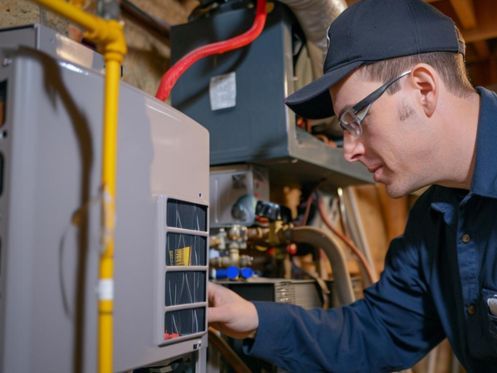


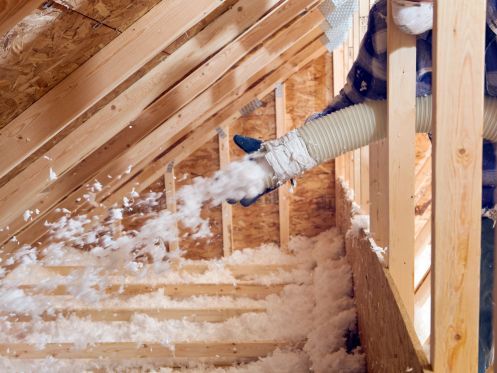

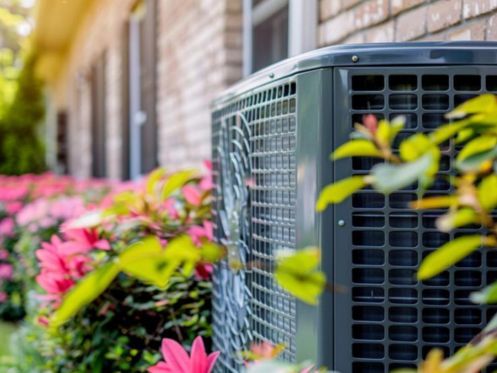



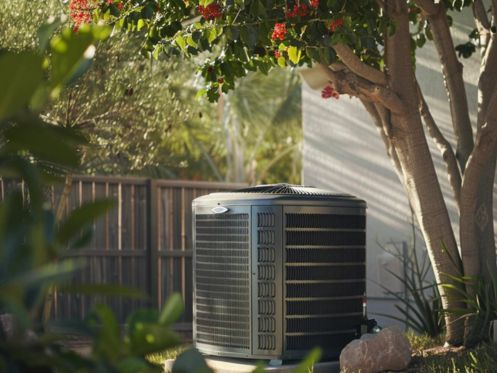

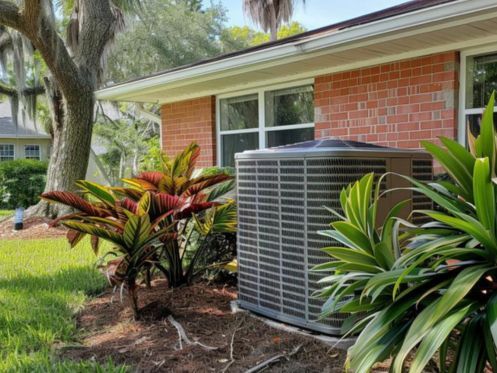
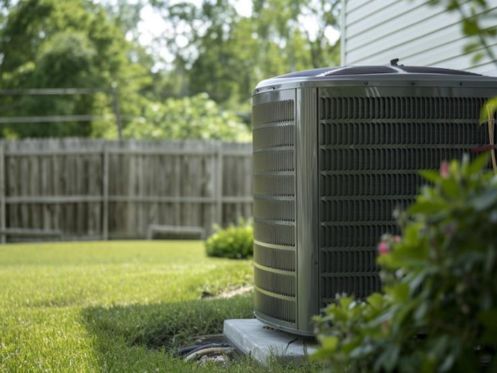
Leave a Reply